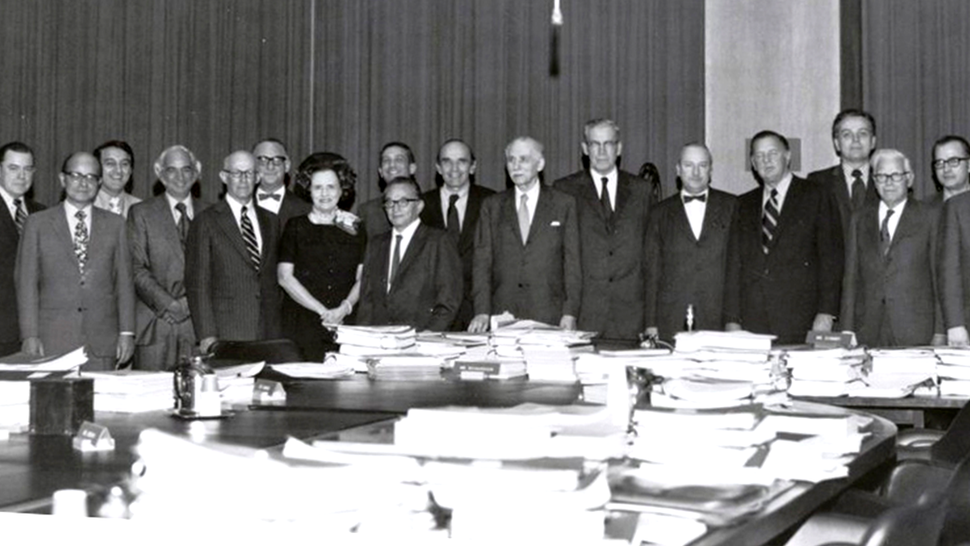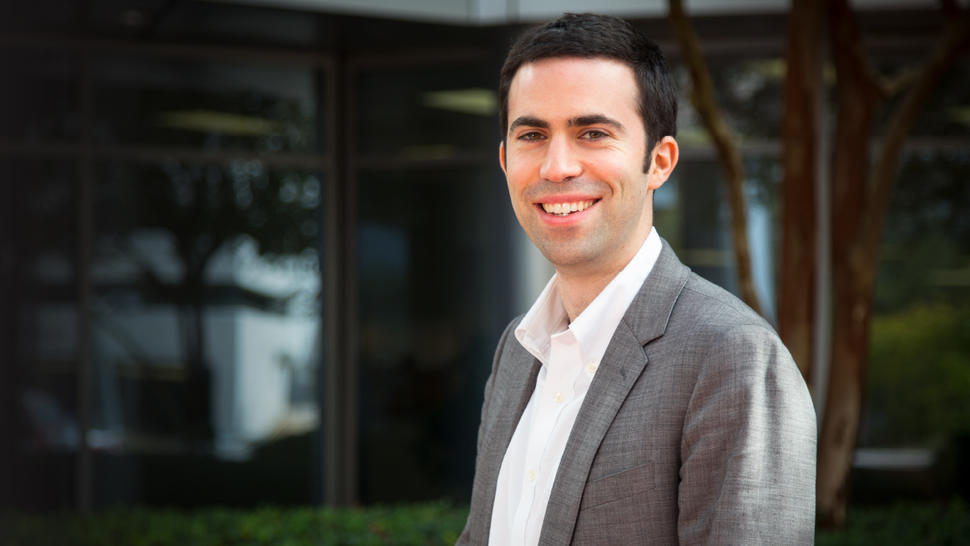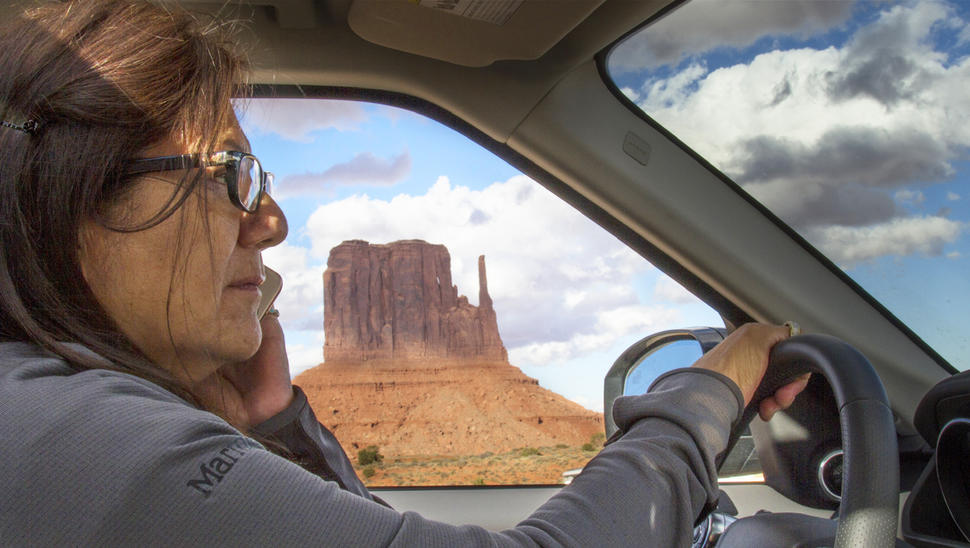Advocates and Allies: The Pioneers of Progress
Cancer advocates have a long history of making sure patients' voices get heard. In fact, one notable advocate had a major role in making the National Cancer Act a reality. Meet these not-so-silent allies of yesterday and today who challenge the status quo, push for progress, and accelerate change in the world of cancer.
Without Her, There Wouldn’t Be a National Cancer Act
Mary Lasker was just three years old in 1903 when she and her mother visited Mrs. Belter, who recently had both breasts removed due to breast cancer. “I recall noticing that cancer didn’t have to be fatal, even though it was very cruel,” Mary said in 1965. “I’ll never forget my anger at hearing about this disease that caused such suffering and mutilation and my thinking that something should be done about this.”
Impelled by her own childhood illnesses and experiences like this, Mary set out to use her resources, networks, and business know-how to become “a matchmaker between science and society,” as Dr. Jonas Salk, one of the first polio vaccine developers, called her. Critics referred to her and her medical research lobby as “Mary and her little lambs,” but she was determined, working closely with researchers to understand and communicate the science, all while navigating the male-dominated research and policy-making spheres.
Her lifelong mission to support greater medical research culminated in the development and passing of the National Cancer Act of 1971. The act created a nationally coordinated cancer research program under the leadership of the National Cancer Institute, part of the National Institutes of Health, bringing more visibility to cancer and supporting programs with policies and funding. At the signing were legislators, researchers, survivors, advocates, and Mary.
Mary Lasker was a fierce health activist until she passed away in 1994 at 93. Her legacy and the work of advocates today, much like the legacy of the National Cancer Act, plays a vital role in shaping NCI’s work.
“We embrace a culture of advocacy at NCI because we know how important the patient perspective is in developing thoughtful cancer care,” said NCI Director Dr. Ned Sharpless. “Research advocates give patients a voice at NCI—they remind us why and for whom we are doing this work.”
Re-Engineering Cancer Research to Accelerate Progress
Josh Sommer has long had a knack for finding and connecting the right people to get things done. It started when, as a college freshman in 2006, Josh was diagnosed with a rare cancerous tumor called a chordoma at the base of his skull. Back then, there wasn’t much chordoma research happening, and when he looked into why, he found several issues: a lack of funding and necessary materials (like cell lines and animal models), few researchers, and no industry investment.
“Many potential opportunities require a catalyst,” said Josh. “And if it’s not someone’s job, it’s not going to get done.” So, Josh made it his job and co-founded the Chordoma Foundation in 2007. Fourteen years later, the foundation has helped increase availability of chordoma models and opened the door for research. It also built up a network of scientists from a handful to now more than 300. These efforts have yielded several achievements, including seven chordoma-specific clinical trials and more on the way.
Josh’s proactive approach took him from being part of NCI’s Council of Research Advocates to partnering with NCI researcher Dr. Chris Heery to include chordoma patients in his vaccine trial targeting brachyury—a protein and key driver of chordoma. The journey also led Josh to bring together scientists from around the globe to apply their unique expertise to chordoma research. And being proactive has allowed the foundation to evolve to where it doesn’t just create scientific connections, but also provides services for patients at every step of their disease.
“Understanding chordoma, bringing people together, and developing patient resources is a constantly iterative process,” said Josh. And it’s because of work by advocates like him who are making these connections that important guidelines, policies, and legislation like the National Cancer Act are passed, and why patients’ perspectives continue to be a vital part of cancer research.
How a Cancer Advocate Goes the Distance for Underserved Communities
“They tell you to dress to crash,” Phyllis said with a small laugh, about flying to remote Alaskan villages to learn about and improve health care access there. “We would likely survive the crash, but we might not survive the elements.”
Traveling great distances to reach Native American, Alaska Native, rural, and frontier communities is not new for advocate Phyllis Pettit Nassi, M.S.W., who is an associate director at the Huntsman Cancer Institute, an NCI-Designated Cancer Center. She may have to drive 9 hours to Montana, but doing so builds trust. “When they see me come in my little Jeep, they know I kept my word,” she said.
While access to remote communities is a challenge, talking about cancer is more difficult. As a member of the Otoe-Missouria Tribe and the Cherokee Nation, she understands cultural rules but still meets resistance. “As is traditional, we don’t talk about diseases because you bring that to you by talking about it,” she said. Using knowledge about clinical trials and precision medicine partly gained from participating on an NCI advocacy board and working group, she alerts communities that “cancer research is moving so fast, and our gap in participation is getting wider.”
Eventually some individuals do open up, and it’s their voices and perspectives she carries when working with NCI and other members of a receptive medical community to increase clinical trial access and improve care. “I’m met with, ‘So, this happened. What do I do?’ and that’s when we can have a conversation” about things like traditional medicine practices or needing language interpreters, she said.
Milestones like the National Cancer Act opened pathways for this kind of thoughtful information sharing, and advocates like Phyllis maintain the momentum. Phyllis, however, doesn’t take credit. “I am not who I am or what I do without the gift of the people,” she said. “They open the doors. With their permission, it’s their stories I tell. It’s them.”


